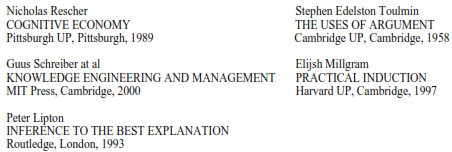PART VI
INFERENTIAL OPERATIORS
What are inferential operators?
Technically, an inference is an explanation or conclusion based on something known, and an operation is a procedure to accomplish an objective. Hence, Inferential Operators are the various cognitive processes whereby one develops an understanding of any issue(s) or a resolution of any problem(s). The twenty listed in the MindMap should not be considered the complete list of such possibilities, although they do cover a very wide range of procedures.
The terms chosen to indicate each operator are not necessarily the only "correct" or "best" ones available - other synonyms could be used. It could be equally possible to create alternative lists which reflect different versions of the experiential gestalt (various mixtures of morality, phenomenology, plausibility and preferentiality). For instance, some of the Operators in the MindMap list might be combined into more encompassing constructs, or others might be disaggregated to explore further distinctions.
How to use inferential operators
Inferential Operators are used in a teleonomic process, the purpose of which is to make an argument. What arguments consist of is reasoning from premises to a conclusion by the use of inference. So, the intention is persuasion, the objects used are reasons and evidence, the result being the altering of beliefs or influencing of behaviour pertinent to the argument (Toulmin, 1958).
Therefore, which inferential operator(s) you use depends on the conclusions you want to draw or the actions you want to take. What all of this indicates is that such decisions or choices are governed by a pragmatic outlook. To avoid the commitment of too much time, too much preparation , and too much effort, inferences are recommended which lead to the "best" explanation or the most practical outcome, rather than spelling out all or most of the conceivable possibilities. It is precisely here that Herbert Simon's concept of satisficing is relevant - doing the best you cognitively can, given the information, time, and interests you have, is all that anyone can reasonably expect - work towards a plausible, tentative estimate. Inferences also enable effective memorization, thus preserving cognitive economy.
References





